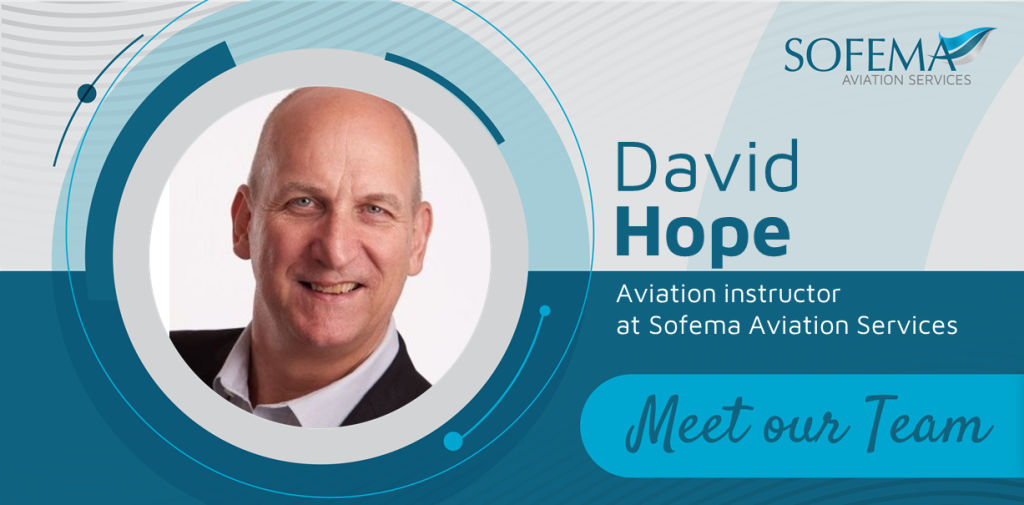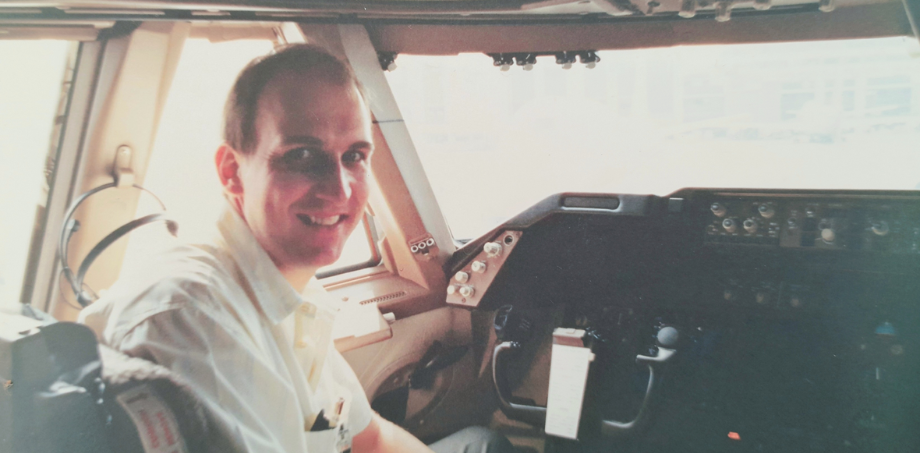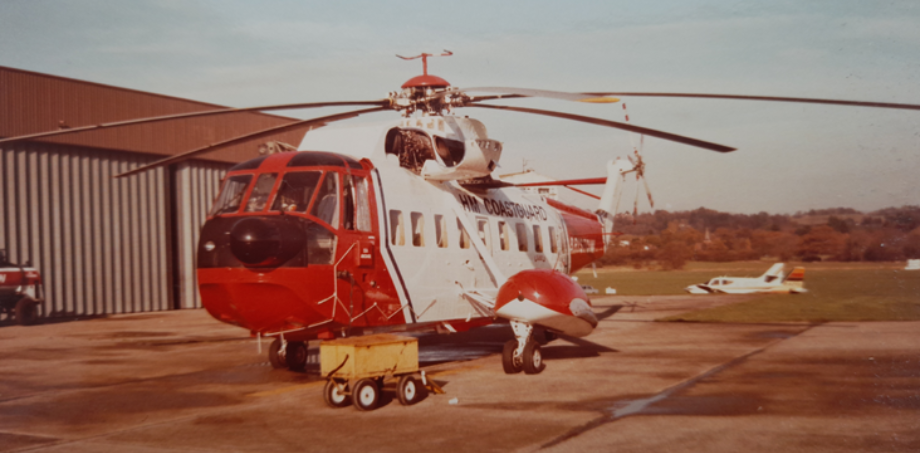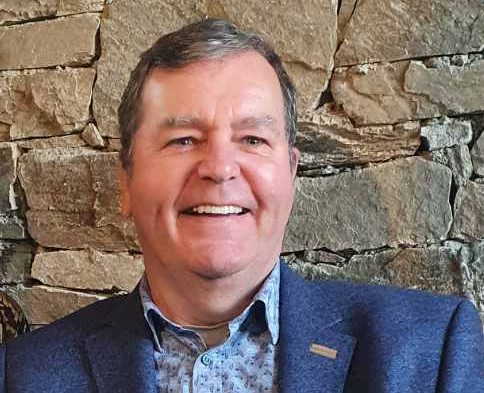1. Initially, what inspired you to start a career in aviation?
Growing up in the UK, I was always interested in science, electronics, and aerospace technology. It was the 1960s and the Apollo moon landing project was in full swing, also the Concorde was being developed. All of this was exciting and cutting-edge, and I wanted to be part of it in the future as an Aircraft Engineer. My father was also an aviation enthusiast and had witnessed the Battle of Britain in 1940. Every year, he took me to a large international airshow at Biggin Hill Airfield, which was near where we lived. There were many famous and interesting aircraft on show there from around the world and it really inspired me to see them up close and flying amazing aerobatics. So when I left school, the obvious choice for me was to join an aircraft engineering apprenticeship.
2. What motivates you as an aviation instructor and what is the best part about being a Sofema trainer?
I have always enjoyed presenting to an audience throughout my career – previously, as a manager of technical teams. As a professional instructor, to be able to hold the attention of a large number of people for a sustained period while conveying a complex subject both clearly and in a manner which makes it interesting and easy to understand is a true challenge, but one which I find immensely rewarding when done well. Working as a SOFEMA instructor I have the opportunity to instruct on a very wide range of interesting subjects to aviation engineering professionals from all over Europe, which in itself is a very motivational prospect. Having worked in nearly all of the areas covered in our courses, such as aircraft maintenance, design, and fleet management, at some point in my career, I have a lot of relevant experience. I find that delegates are always interested in learning the ‘real life’ or practical side of the subject matter, and I very much enjoy sharing that knowledge. I am able to go beyond the basic script and convey some examples of the technical, managerial and organisational challenges I have encountered over the years and how I approached them.
3. Which aspects do you find most rewarding in your career?
Two things really. First, the opportunity that good engineering training in aviation provides in terms of being able to change roles and work in varied areas of the industry, gaining many new skills along the way. I have been fortunate to be able to do everything from designing and flight testing helicopter autopilots to running a large aircraft maintenance operation to managing the relationship between a major airline and Airbus and Boeing. Also, working in the global aviation industry has given me the opportunity to work all around the world for years at a time in some very exciting places such as Hong Kong, Dubai and Australia.
4. And what challenges have you faced along the way?
Probably the biggest challenge has been in balancing my global career aspirations against the needs of the family – particularly in terms of stability. My family all enjoyed the world travel associated with my various positions, but I had to make sure that I spent enough time in each country and role so our children could build cultural roots and have an uninterrupted education. Fortunately, we managed to pull that off successfully, although some difficult decisions had to be made from time to time. Another challenge is when you move around, you may find your existing qualifications aren’t enough to support you in a higher level role, or indeed, may not be fully recognised in your new country. On a couple of occasions, I found it necessary to go back to the books and take night school to gain the additional technical qualifications and accreditations which I needed to work at the level I wanted to. But I guess this is true for anyone at some point in their careers – after a while in a job, you need to refresh your professional knowledge to become more marketable.
5. Besides aviation, what other areas pique your interest?
I have always been an enthusiastic amateur musician, and I play both the electric guitar and drums. On the latter instrument, I was in a part-time Rock Band for 10 years in the 1990s! Earlier in my life, I used to paint with moderate success – mostly in oils, landscapes, and aviation subjects. I hope to get back to that hobby soon. Other than that, I like keeping in touch with world affairs, and reading books on science and history. In terms of getting outdoors and keeping fit, I run regularly around the beautiful countryside near my home in Western Ireland, which I always enjoy as it is great for clearing the mind.
6. Lastly, what will you advise people who dream of a career in aviation?
I would say study hard to get the qualifications you need. That doesn’t have to be a university degree in the first instance – a solid apprenticeship or traineeship in aircraft maintenance engineering or manufacturing offers many career paths, as many of my generation have found. I think this still holds true in 2024.
Secondly, try to work for companies that have a genuine interest in developing your progression for the betterment of their organisation. i.e. look for a company which has high technical standards and a good team culture. Also, don’t be afraid to take the roundabout route to senior positions. Career progression is not linear in practice, and it often makes sense to move sideways to different roles in different organisations to build up both your knowledge and breadth of experience. Take some well-considered risks, like leaving the company you have been with for the last six or seven years to challenge yourself in a new role, maybe in a different country! Life is too short to stay in one organisation for too much of your career, and may not always serve you well. A career is not about gaining ever-more senior titles and climbing up the ‘greasy pole’ (and believe me, it is greasy!). It’s about having genuinely interesting and challenging experiences in an exciting industry and working with great people. Do what inspires you most, don’t be constrained by conventional notions of what constitutes a career.
About Sofema Aviation Services
Sofema Aviation Services www.sassofia.com and our sister company Sofema Online www.sofemaonline.com provide classroom and online training for regulatory and vocational training fully compliant with EASA requirements. Over the years we have helped many thousands of aviation professionals gain a deep understanding of both the regulatory environment as well as competence-building vocational training. Since our start in 2008, we have achieved over 85,000 enrollments. 700+ Classroom & Webinar courses are currently available together with over 400+ courses available online through our sister site www.sofemaonline.com
Visit the SAS training portfolio
Next Steps
If you want to learn more about our services, visit our websites Sofema Aviation Services www.sassofia.com & Sofema Online www.SofemaOnline.com, or email us at team@sassofia.com.







